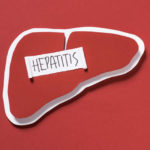Caution: Hepatitis C and Vitamin D Deficiency
In addition to dietary recommendations for liver disease, a significant portion of people with the Hepatitis C virus (HCV) take vitamins and herbs to support their liver. Despite this trend, American researchers have confirmed that living with chronic Hepatitis C is usually accompanied by a vitamin D deficiency. Worried about the consequences of a vitamin D deficiency, those with the virus may choose to supplement with this vitamin. However, vitamin D is toxic in large doses and taking too much of it could end up being more harmful than not having enough.
About Vitamin D
Vitamin D is a fat-soluble vitamin that helps the body absorb calcium and plays a crucial role in the growth and maintenance of strong, healthy bones. A lack of vitamin D causes calcium-depleted bone, which can weaken the bones and increase the risk of fractures resulting from osteoporosis. While vitamin D is probably best known for its role in bone development and maintenance, it’s also involved in the brain, immune and reproductive systems. A lack of vitamin D can cause osteomalacia in adults and rickets in children, both of which are unwelcome additions to the burden of chronic liver disease.
Vitamin D is found in food, but can also be produced in the body after exposure to ultraviolet rays from the sun. Some forms of vitamin D are relatively inactive, with a limited ability to function as a vitamin. The liver and kidney help convert vitamin D to its active hormone form. But for those with advanced liver disease from Hepatitis C, a deficiency can conceivably develop from the liver’s inability to convert vitamin D into its active form.
The Research
Presented in October 2008 at the 73rd Annual Scientific Meeting of the American College of Gastroenterology, researchers from the University of Tennessee in Memphis measured the vitamin D levels in people with chronic liver disease. Of those evaluated, 85 percent of the study participants had chronic Hepatitis C. After dividing every vitamin D deficiency into three categories (mild, moderate and severe), the investigators found the following:
- 92.4 percent of those with chronic liver disease had some degree of vitamin D deficiency
- At least 33 percent of participants were severely deficient in vitamin D
- Severe vitamin D deficiency was more common among those with cirrhosis
Lead researcher Dr. Satheesh P. Nair commented, “Since deficiency is common among these patients, Vitamin D replacement may hopefully prevent osteoporosis and other bone complications related to end stage liver disease.”
Vitamin D Supplementation
For those with a documented vitamin D deficiency, supplementation can help prevent bone density problems from emerging. Established by the U.S. Institute of Medicine of the National Academy of Sciences, the recommendations for supplementing with vitamin D are as follows:
- 200 International Units (IU) for those between the ages of 19 and 50
- 400 IU for those ages 50 to70
- 600 IU for people over age 70
Increased dosages may be recommended as a person ages due to the skin’s declining ability to absorb the sun’s radiation and an inability of the liver or kidneys to transform vitamin D to its active form.
Vitamin D’s Danger
Between the newly released research connecting vitamin D deficiency with chronic HCV and the ease of obtaining vitamin D supplements, it seems that those with HCV would jump at the opportunity to supplement with vitamin D. However, too much vitamin D is dangerous for those with liver disease because it is toxic. Vitamin D toxicity can cause:
- Nausea
- Vomiting
- Poor appetite
- Constipation
- Weakness
- Weight loss
Too much vitamin D can also raise blood levels of calcium, causing mental status changes such as confusion and heart rhythm abnormalities. Another consequence of excess supplementation is calcinosis, the deposition of calcium and phosphate in soft tissues like the kidney.
The Food and Nutrition Board of the Institute of Medicine considers an intake of 1,000 IU for infants up to 12 months of age and 2,000 IU for children, adults, pregnant and lactating women, to be the tolerable upper intake level. Toxicity reports are associated with dosages above these levels.
While the results of the trial conducted in Memphis clearly link vitamin D deficiency with chronic HCV infection, those affected must beware. Supplementing with vitamin D could help prevent some of the consequences of insufficient vitamin D – but taking too much poses even greater dangers. A person’s best bet to make sure their vitamin D levels are adequate is to discuss their concerns with their physician and, if necessary, agree on the best way to supplement with vitamin D.
References:
http://healthlink.mcw.edu/article/982088787.html, Vitamin D, Retrieved October 12, 2008, Medical College of Wisconsin, 2008.
http://hepatitis.about.com/b/2008/10/06/are-you-getting-enough-vitamin-d.htm, Are You Getting Enough Vitamin D?, Charles Daniel, Retrieved October 12, 2008, About.com, October 6, 2008.
http://hepatitisc.va.gov/vahep?page=diet-02-09&pf=doc-pf&pp=pf, Diet and Nutrition, Retrieved October 12, 2008, United States Department of Veteran Affairs, 2008.
http://www.eurekalert.org/pub_releases/2008-10/acog-vdd100308.php, Vitamin D deficiency common in patients with IBD, chronic liver disease, Retrieved October 12, 2008, American College of Gastroenterology, October 6, 2008.
http://www.merck.com/mmpe/sec01/ch004/ch004k.html, Vitamin D, Retrieved October 12, 2008, Merck & Co., 2008.
http://www.prnewswire.com/cgi-bin/stories.pl?ACCT=104&STORY=/www
/story/09-25-2008/0004892578&EDATE=, Vitamin D Deficiency Reports May Be Causing Some to Overreact and Take Harmful Actions, Retrieved October 12, 2008, US Preventive Medicine, PR Newswire Association LLC, September 2008.








3 Comments
I have just started taking vitamin d-3 5000. Is that to strong. I have been dignosed with hep-c
This suggestion that over a meager 2,000 IU can be toxic is
incredibly misleading naive and dangerous advice.
If you read the countless studies on upper limits of Vitamin D toxicity you
will realize the huge tolerance limits of even one off 300,000 IU D3 or D2
doses. Only some concern with excess PTH suppression in these cases, no
toxicity at all. It is extremely difficult and rare to reach toxic levels of
Vit D.
The extremely low RDI’s (parroted by others and accepted without careful
consideration research or clinical practice) was based on the prevention of deficiency
states of rickets which requires small doses. This says nothing about
insufficiency states. Recent meta-analysis and systematic review studies show a direct correlation with
higher quintile serum 25(OH)D and greatly lowered incidence of bowel cancer,
breast cancer, depression, autoimmune diseases, Alzheimer’s, Cardiovascular
disease, infection rate ……
Vitamin d receptors are found in most cell types, exhibit
gene expression in cell differentiation and have huge implications in
rethinking vitamins D’s extra-skeletal roles in the body. Many researchers are calling for a rethink on previous simplistic assumptions and generalizations of RDI limits.
These levels are never reached with the small amounts mentioned
here. Ive been on 4,000IU/day for 6 months. (No problem thus far). All cases
are different though and I always good to talk to a well read practitioner
and not websites or even comments like this. Do your own research and test anything
you hear or read.
My new dr had a nurse inform of vitamin D deficiency. I am taking 50,000 units of this a week for eight weeks. I have been very ill. I have HCV. Since taking the D my stomach is swollen and my right side hurts very bad! I am frightened. Please comment. Is the amount of D too much?